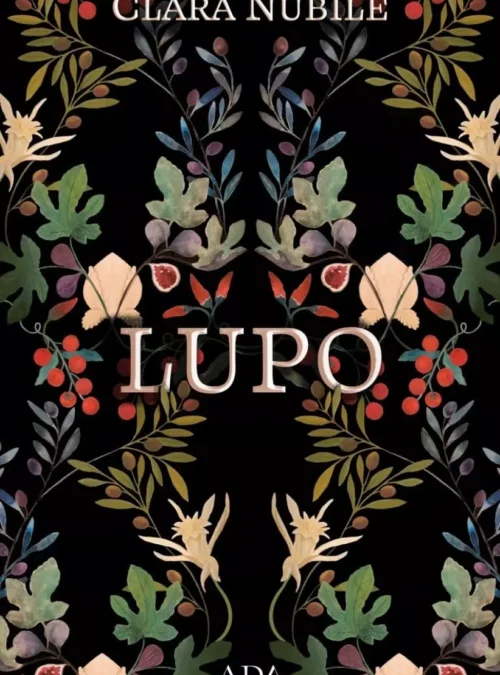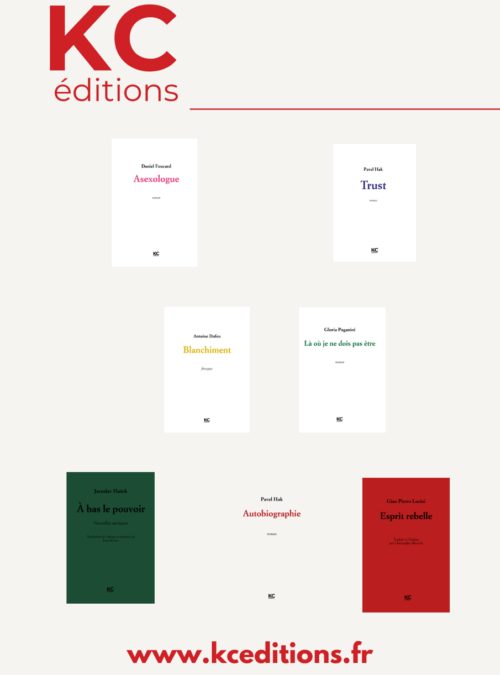Interview with Francesca Mancini, director of the Add publishing house
Author: Laura Pugno

This new instalment of newitalianbooks‘ series of interviews with editorial directors and publishers of Italian publishing houses continues with Francesca Mancini, director of Add publishing house, founded in Turin in 2010, which Mancini took over in 2014 together with Paolo Benini.
As usual, the question is:
How would you describe the identity of Add publishing house to readers of newitalianbooks abroad?
Add is an independent publishing house based in Turin, which publishes popular non-fiction and books on Asia, essays and fiction. We explore contemporary issues through themes and sensibilities that define the complexity in which we are immersed. We are interested in opening up perspectives that broaden horizons and add awareness. This is why we give a voice to Italian and foreign authors who surprise us with the originality, competence and accessibility of their point of view.
We have focused on topics such as the impact of new technologies on societies and individuals, feminism today, immigration and freedom of movement, nature and ecology, civil rights, but also more intimate issues that reflect contemporary sensibilities.
Operating in a context where books do not enjoy state support and the number of readers is rather low compared to other European countries (a study says that in Italy only 35% of the population read at least one book in 2024, compared to 54% in Spain and 62% in France, for example), it becomes particularly important to carve out an identity and be recognised for a consistent and interesting approach.
What we get back from readers, booksellers and other players in the cultural sphere is a certain courage in choosing surprising and never predictable points of view, and it is basically this attitude that defines the publishing house.
It was in this vein that the publishing project dedicated to Asia was launched in 2015, bringing established authors from their respective countries to Italy for the first time and giving space to Italian authors with a deep knowledge of the history and culture of countries in a part of the world that is increasingly breaking into the global imagination and that more and more people want to know about.
What are its characteristics and strengths?
Staying with the Asia series, which offers short stories, science fiction and weird fiction, memoirs, pop essays, but also historical and geopolitical essays, travelogues and comics, the idea is to offer a varied view of the Asian world that goes beyond stereotypes and at the same time allows new points of view to arrive in all their freshness and strength. We have translated books from Chinese, Japanese, Korean, Indonesian and Thai to avoid as much as possible the gap that can occur when translating from English rather than from the original language, and we are finally seeing that even in Italy there has been an evolution in the recognition of the literary value of Asian literature. Dealing with such distant linguistic universes, those of the individual Asian languages we work on and Italian, opens up constant reflections on the very construction and conception of the world.
We are attracted to works that are sophisticated, evocative and authoritative, whether it be Matt Alt’s essay, Pop, a fascinating account of the Japanese creations that have revolutionised pop culture by entering our everyday lives, or Tim Harper’s historical essay on anti-colonial and anti-imperialist movements in Asia Rebellious, or a 1995 Taiwanese queer science fiction text such as Membrane by Chi Ta-Wei. We are interested in future imaginaries, and this also leads us to rediscover authors who were precursors of contemporary themes, such as Suzuki Izumi, a Japanese anti-conformist icon who published in the late 1970s and early 1980s, expressing a radical and nihilistic feminism that was absolutely ahead of its time. Noia terminale is the first collection of short stories by this author that we have brought to Italy, and this year we are continuing with another collection, Hit-parade di lacrime, which focuses on the theme of mental health and group hysteria in an increasingly alienated society.
Upcoming releases also include an anthropological essay on the history of Chinese food by Fuchsia Dunlop, an authority in this field who already has a large following in Italy among food enthusiasts. And then there is a queer science fiction horror book from South Korea, written by a masked author, Dolki Min.
Among Italian authors, we have given space to writers with in-depth direct knowledge of the Asian countries they write about, and we are seeing that they are receiving increasing attention from the media and readers who appreciate their expertise and ability to present an unbiased approach to those cultures. These include Marco Del Corona, with Asiatica, a literary guide to a continent in transformation; Ilaria Maria Sala with L’eclissi di Hong Kong (The Eclipse of Hong Kong), a book full of individual stories and urban flavour for those who want to understand how much Hong Kong has changed and what the future holds for it; Carla Vitantonio with Pyongyang blues, who, with her account of four years of life and work in North Korea, has made that country a little less alien; Simone Pieranni with Tecnocina, a history of Chinese science and technology that fills us with wonder and definitively debunks the idea of China as the world’s factory; Matteo Miavaldi with Un’altra idea dell’India (Another Idea of India), which tells the story of today’s India, a country hurtling towards a future as a superpower beyond myths and stereotypes; Paola Laforgia with Fattore k (Factor K), which recounts the rise of Korean pop culture.
Moving on to our essays, our aim is to present authors who are able to shed light on issues that are close to our hearts with their cross-cutting approach, as we said at the beginning of this interview. If we take, for example, the theme of feminism and gender issues, we began to address this with a comic book that combines a highly emotional personal story with reflections on data on gender-based violence and its repercussions on individuals and societies (Io sono una, by Una); we then published L’Atlante delle donne (The Atlas of Women) by Jony Seager, an immense work rich in data that examines the global situation of women in work, education, sport, access to digital tools, the economy, war and immigration, etc.; with Giusi Marchetta, teacher and writer, we have produced two essays, Tutte le ragazze avanti (All Girls Forward), which recounts, through various testimonies from young women, what it means to be a feminist today, and then Principesse, which, in its analysis of female figures in fairy tales and TV series, deconstructs the patriarchal image in which societies, in various historical situations, have caged girls and women. We have broadened the reflection to intersectional feminism through Rafia Zakaria’s essay Contro il femminismo bianco (Against White Feminism) and to the theme of artificial gestation with Eva by Claire Horn, exploring its technical, moral, philosophical and democratic implications. Giulia Muscatelli’s book, Io di amore non so scrivere (I Don’t Know How to Write About Love), has just been published. It is a survey that gave young girls and boys the opportunity to express themselves on love, relationships and gender relations. In the coming months, a book by writer Francesco Pacifico, La voce del padrone. Un monologo (The voice of the master. A monologue), will be published. It is a personal essay on what it means, concretely and emotionally, for a man to confront the end of patriarchy. I will conclude this overview of this specific topic, which aims to give an idea of how we approach the various topics we offer our readers, by mentioning two books by researcher and podcaster Victoire Tuaillon, Fuori le palle (Get your balls out) and Il cuore scoperto (The heart uncovered), the latter due out in May and edited by Associazione Vanvera, a collective of women who brought the podcast of the same name to Italy. The former provides food for thought on the reasons behind male chauvinism and the privileges that come with being male, while the latter explores the possibility of establishing loving relationships free from dynamics of domination and power, in the awareness that the intimate and political spheres are intertwined.
If we look at another theme we have begun to address, that of the relationship between man and technology, our gaze is turned towards understanding the new dimensions in which we are immersed, which are not easy to decipher and understand in terms of future developments: artificial intelligence, the interpenetration of human beings and technology, power and technology are some of the aspects we have focused on and which we offer to readers through books such as Contro lo smartphone: per una tecnologia più democratica (Against the Smartphone: For a More Democratic Technology) by Juan Carlos De Martin, Simulacri digitali (Digital Simulacra) by Andrea Signorelli, an in-depth look at the risk that digital technology will plunge us into a fictitious reality that we can no longer distinguish, and Tecnopolitica (Technopolitics) by Asma Mhalla, which investigates the nature and implications of the relationship between digital technologies and politics.
Which literary and non-literary ventures have worked best in Italy and, in your opinion, why?
The project dedicated to Asia is working very well because it has tapped into a growing interest, especially among relatively young people. Books that intertwine knowledge – anthropological, economic, social, biological, geographical, political, etc. – and tell stories of people, things and phenomena have worked well. I believe these books satisfy the desire of some readers to approach broad knowledge in an accessible way. I will conclude with a graphic novel that was a winning bet for both the publisher and the author, a story that is powerful and delicate at the same time: Mor, storia per le mie madri (Mor, a story for my mothers) by Sara Garagnani, which, through autobiographical storytelling, reconstructs the mechanisms of dysfunctional relationships that arise in families and explores the possibility of overcoming them by deconstructing them. Mor was published in 2022 and is continuing its journey, and when a bookseller says to you, “this book will always be on our shelves”, you experience one of those rare moments when you feel a deep connection with the meaning of your work.










